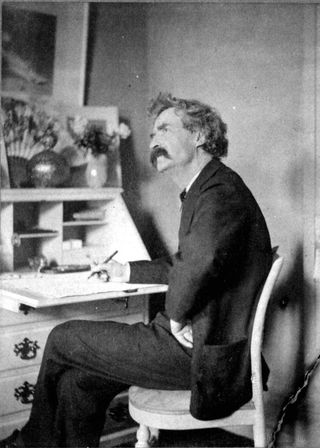Politics
Why Do You Need a Purpose in Life?
The benefits of having a purpose are enormous.
Posted February 10, 2020 Reviewed by Daniel Lyons M.A.
“What do you want to be when you grow up?” my father asked me when I was eight-years-old. He would periodically ask me this question (as would numerous other adults — it still seems to be a popular question to ask children when they are too young to have a clue). Two years earlier, I answered, “I want to be a scuba diver like the man in Sea Hunt (a popular TV series from the 1960s). But this time, I answered, “I want to be a writer.” I had recently been praised for some poetry and stories I wrote; I enjoyed writing and it seemed to come naturally. I haven’t wavered since. It’s rare to know what you want to do for the rest of your life; it’s even rarer to know your purpose in life. I certainly didn’t know mine at age eight.

Two years later, after a particularly good sermon by my minister, Dr. Cecil Myers, I told my mother I wanted to be a minister. Dr. Myers was a master storyteller and joke teller. He is the only preacher who has ever been able to hold my attention. My mother suggested that I enroll in confirmation classes with my church. Wow, that cured me of any desire to be a minister; I quickly realized I wasn’t interested in all the religious stuff.
What I was interested in was telling great stories and jokes. At age ten, my interest in becoming a speaker was already emerging. But, speaking — telling great stories and jokes — is still not a purpose.
When I was 12, I saw a Mark Twain impersonator on stage, and it crystallized in my mind what I wanted to be: a humorist writer and speaker. But, that was still not a purpose. I wouldn’t discover my purpose until I was much older and had a body of written work under my belt.
When I was in college I became interested in politics — not with the traditional two parties — but with an idea. I was attracted to the Non-Aggression Principle (NAP), similar to the Golden Rule. The NAP is the belief that a person is free to act as they choose as long as they do not initiate force, or the threat of force, against another person or their property. It’s an ideology that embraces freedom and peace. In brief, I believe it’s wrong to hurt people and take their stuff, and that there are no exceptions.

When I went back and reviewed my collection of short stories, novels, and novellas, I discovered a unifying theme. They were all — in some aspect — about being bullied and standing up to the bullies (it made sense: I was severely bullied as a kid, and it took me years to overcome it).
I had found my purpose: helping people deal with bullies. It was driving my interest in politics, and it was emerging subconsciously in the words of my fiction. I have been passionate about this cause ever since. Today, I define my political belief as voluntaryism (look it up).
Why Is It is So Important to Have a Purpose?
Having a purpose is all about finding what activities make you happy, while at the same time being able to use your natural talents to pursue them. Then, it’s all about getting so involved and absorbed with your passion that you completely lose track of time.
If you don’t know what your purpose is, how do you find it? That’s easy: follow your joy. When you feel joy, it is such a powerful emotion that it speaks the truth from the depths of your subconscious. Think of the things that have brought you joy in the past. Next, make a list of those times, and look for a pattern.
Sometimes, you have to search for your purpose. The way to do that is to force yourself to try new activities: take a class; join a club or other group; volunteer; learn a new skill, start a new hobby. Try to remember anything in which you’ve ever expressed interest, then go back and explore them.
Having a purpose in life is vitally important! Studies have shown that having a purpose leads to a longer healthier, wealthier life. According to a 2010 study published in Applied Psychology, people who have a purpose live longer. Now that’s a real value!
According to Time Magazine, purposeful living has been linked to a lower risk of disease, better sleep, and other healthy behaviors. And, according to a study in JAMA Psychiatry, having a purpose in life helps aging people maintain their function and independence. People in the study, who reported having a sense of purpose, were less likely to have weak grip strength and slow walking speeds, both of which are signs of declining physical ability and risk factors for disability. They also noted that people with purpose are more proactive in taking care of their health. Additional studies reported that purpose-driven people have lower levels of inflammation.
Last, but not least, a 2016 study published in the Journal of Research and Personality found that: “individuals who feel a sense of purpose make more money than individuals who feel as though their works lack meaning.” There’s some solid motivation for finding a purpose.
Go find your purpose, it doesn’t have to change the world, it just has to engage your passion. Once you’ve found it, go live a longer, happier, healthier, wealthier life.
Robert Evans Wilson, Jr. is an innovation/change speaker, author, and consultant.




